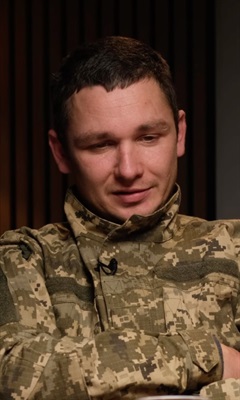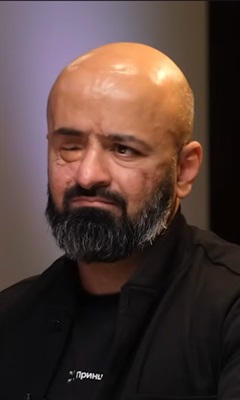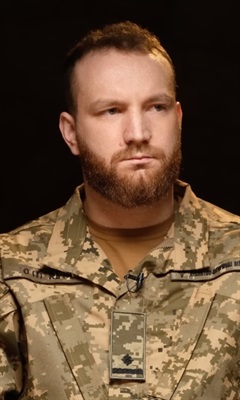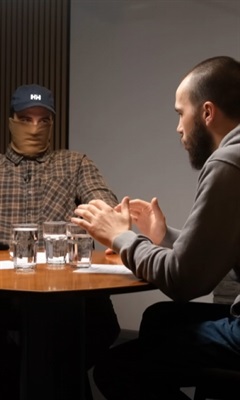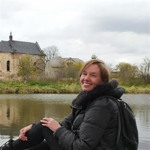"I gave the Russia's war everything I had": 3 stories of editors from frontline cities in the East
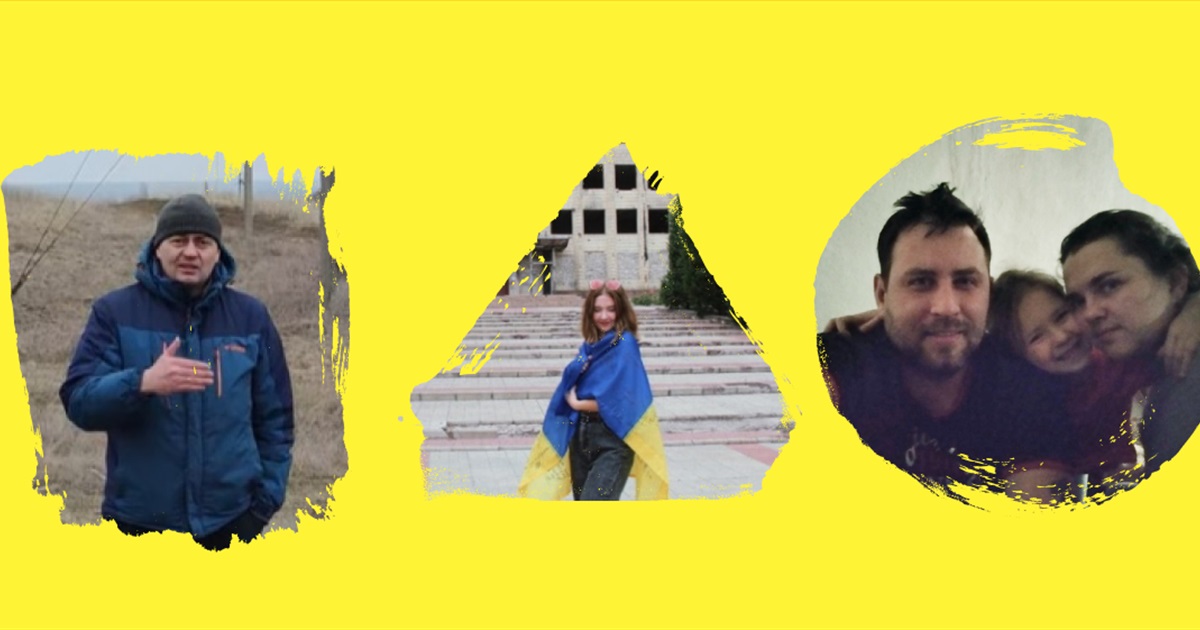
The ABO Local Media Development Agency has prepared the stories of three editors of The City network websites. All of them lived and worked in frontline cities in the east: Volnovakha, Popasna and New York.
“I am ready to reconstruct Volnovakha from scratch. If only Ukraine was there”
Pavlo YESHTOKIN, an owner of the Volnovakha.Сity website, Donetsk oblast
On March 12, the Head of Donetsk Oblast Military Administration stated: "Volnovakha no longer exists."
Three weeks earlier, on February 24, Pavlo YESHTOKIN, the editor of the regional website Volnovakha.City, could hardly sleep. He was lying in bed at home with a fever and heard shells falling, but he did not care too much. They got used to the sounds of shelling in Volnovakha: these have been heard on the city outskirts for 8 years already.
In February, as explosions escalated, the residents of neighboring villages were sharing videos of destroyed homes. But even in such conditions, Pavlo could not believe that this would result in a full-scale offensive.
Every subsequent explosion turned out to be stronger than the previous ones. Pavlo saw an immense flash, with the glass collapsed loudly in a block of flats building. From his own experience it was clear: it is a large caliber and flew closer to the building than over all the previous years of the war.
Pavlo knows a good deal about how the shots sound: in 2014, he, as a part of the "Phoenix Wings" organization, helped people on the then frontline in Hranitnoie: he could tell the sounds of GRADs and mortars; the sounds of exploded shells in the plowed ground and amidst residential areas.
Back then, Volnovakha was a peaceful city with open restaurants and people having a rest. However, everything has changed in 2022.
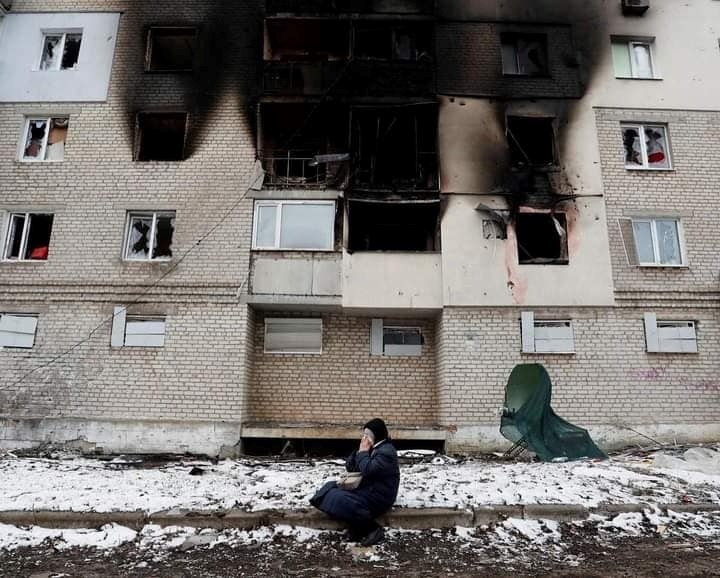 Destroyed residential building in Volnovakha
Destroyed residential building in Volnovakha
Together with his wife and a five-year-old daughter Varvara, he took a minimum set of belongings and got into a Zhiguli car bought three days before these events. They did not drive far: 100 kilometers from Volnovakha to Zaporizhzhia oblast. Locals gave them shelter in a village house.
From the correspondence with acquaintances Pavlo learned: the Russian artillery is simply shelling residential buildings in Volnovakha where no signs of the Ukrainian military equipment are observed.
“At that moment, I realized that we will unlikely return to Volnovakha, that we have lost our home and both family businesses – media and land use management," says Pavlo YESHTOKIN.
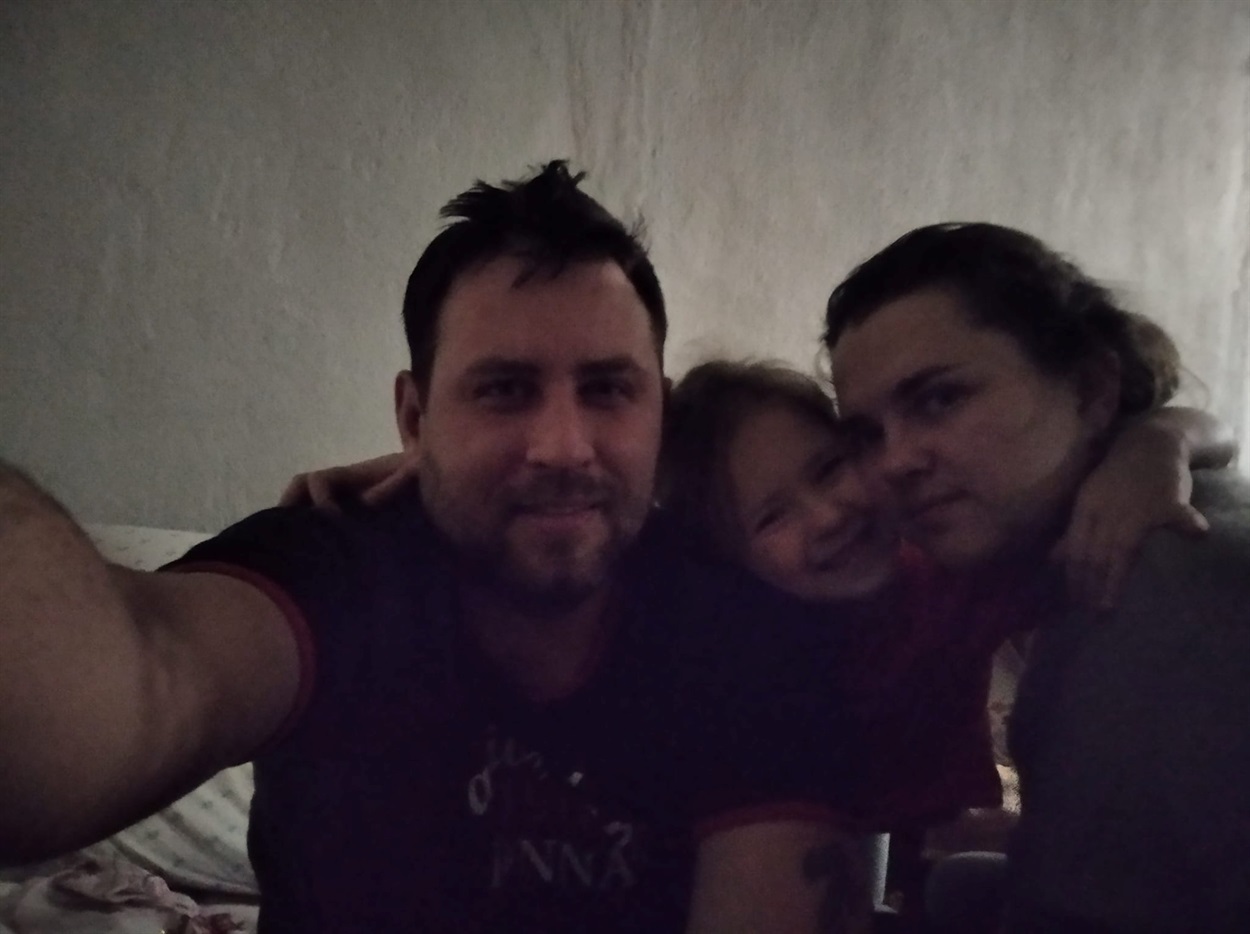 Seventh day of the war. Pavlo with family in a village in Zaporizhzhia oblast
Seventh day of the war. Pavlo with family in a village in Zaporizhzhia oblast
On the sixth day of Pavlo’s family stay in the village, there was a cut of power and mobile connection. The Russian army was heard as it was approaching, the explosions became louder, and the Ukrainian military troops entered the village. The family moved a little further to Huliaipole, but there was also no electricity, no heating, no telecommunication.
The night before the next trip, Pavlo deleted chats on his phone. He has learnt since 2014 how pro-Ukrainian symbols and "extra" information in messengers lead to captivity and torture. At that time, his friend entering Donetsk was captured from the car right in front of Pavlo.
This time I was lucky. In the morning, the family managed to get to Dnipro and for the first time in 10 days we took a shower and slept. Telecommunication and the Internet were repaired as we were on our way. "It feels like we are leaving North Korea for the South Korea," he later wrote in his Facebook diaries.
- I keep from watching the video from Volnovakha shot nearby my home. I remember it intact and I want to preserve this picture in my mind. My 92-year-old grandmother, who raised me, is now in the city. I believe she is still alive.
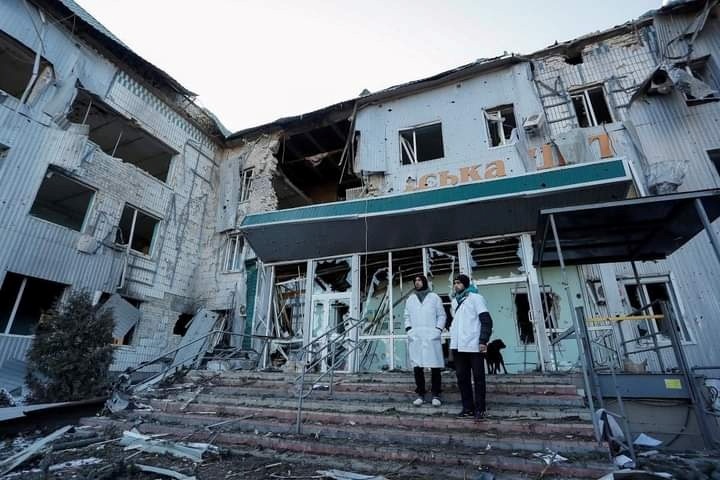 Destroyed hospital in Volnovakha
Destroyed hospital in Volnovakha
Currently, there is no connection with Volnovakha. The city lives without electricity, gas, water – there is a humanitarian catastrophe with continuing shelling and destroyed infrastructure. Pavlo has no plans for the future so far:
- It is still quiet in Dnipro. My mother lives in Poland, and due to my disability as a result of the anti-terrorist operation they could let me go abroad, but as long as there is at least a piece of territory here, we stay here. I want to bring our victory closer by all means and I will feel nowhere better than on my land. So, I want to stay as close as possible to my home.
For the time being, he is contributing to the information front, running the largest Facebook group in Volnovakha district, coordinating people who are looking for their close ones. He is planning to update his website, although there is actually no one to write for him. One journalist was evacuated, another journalist from the Volnovakha.City team stayed in the city but has been out of reach for two weeks.
- In 2014, my friends and I tried to preserve our Volnovakha in Ukraine. Back then, in the first war with Russia, I gave everything I actually had: my health, business, money, friends, but soon I learned to make a new start.
Despite the current condition of the city, Pavlo is convinced to return to Volnovakha as soon as Ukraine wins and the Ukrainian Armed Forces liberate it.
- After the events of 2014, many businesses were evacuated to Volnovakha from the occupied areas. We developed our businesses, rebuilt the city. In the past 5 years, five new restaurants have opened in Volnovakha; and this is in the front-line city with 30 000 residents! We built a stadium and set up a football team. A park, schools and kindergartens were reconstructed. And we will do it again, even if Volnovakha is turned to ashes. If only Ukraine would win.
“I learned about my father's death by hearsay. I still do not know what happened to his body”
Valeria PANASENKO, a journalist of the NewYorker.City website, Donetsk oblast
"I don't remember what it was like before the war, I was 10 years old back then," says Valeria PANASENKO.
A few days ago, her 18th birthday was under gunfire again. The village of New York, where Lera lives, is located in Bakhmut district. The frontline has been close all these years: from here it is only 6 kilometers to Horlivka, only 38 kilometers to Donetsk. And although the village has never been occupied, it faced the horrors of war long before 2022.
"Everyone had a feeling of something bad to happen but no one was seriously thinking about it. In the days before February 24, I was undisturbedly walking with friends. Later I realized that we did not appreciate those moments. Now I'm afraid to leave the house unless it is really necessary. The other day, I left to do some shopping, heard explosions nearby and came back,” says Valeria.
 Valeria PANASENKO, photo taken on March, 4
Valeria PANASENKO, photo taken on March, 4
This war has already taken away Lera's father. The girl learned about his death on February 28. Valeria's father was a former policeman, he was mobilized during the Anti-Terrorist Operation (ATO). At first, he worked at the military registration and enlistment office then he joined the frontline forces.
"When the full-scale war broke out, he was sent to Hranitne, near Volnovakha. He did not get in touch for several days, then called and said that the power banks were broken and there was no connection and electricity. The connection was broken later, and we could not communicate since then. And we will never talk again,” says Valeria.
She learned that her father was gone by hearsay.
- Village people started talking about it, but no one called me, my mother or grandmother, no "death notice" was received. We started calling his brethren, and they confirmed that father had died. We were told that his body could not even be taken away because of endless shellings in Hranitne and Russian troops based there. It's mid-March, and I still do not know anything about his body.
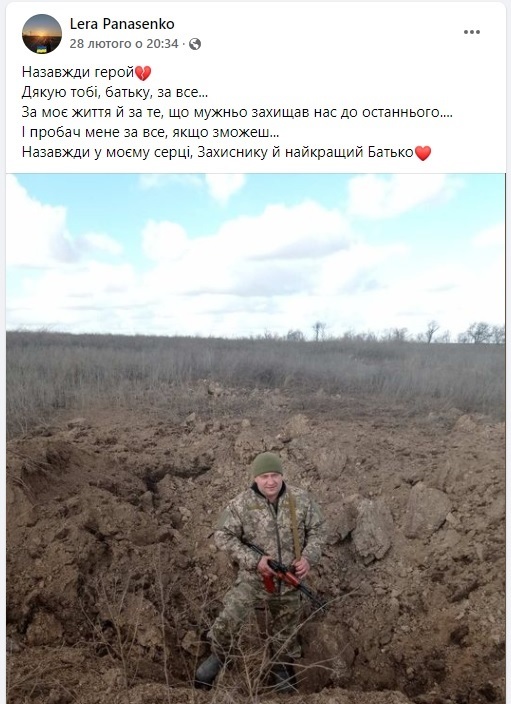
A hero forever
Thank you, father, for everything…
For my life and for courageously defending us to the last…
And forgive me for everything, if you can…
Forever in my heart, Defender and best Father
Compared to Mariupol or Volnovakha, New York is undisturbed. But the shelling is heard very close. However, most of the villagers do not hide in shelters – there are hardly any of these here.
"Recently, we, as journalists, checked the bomb shelters, and the situation there was so-so. We found bare wires and a risk of flooding in one of the basements, the other one was like a rubbish bin. There are shelters in school basements but we do not rush there because we are used to the sounds of explosions,” says Lera.
There are periodic power cuts in the village. As she says, food is more or less available: local entrepreneurs are trying to deliver the essential products. Big business was the first to quit: network suppliers are afraid to go to Donetsk oblast. Medical supplies are provided by volunteers who bring them from Dnipro and the west of Ukraine.
- I thought I was used to explosions over 8 years but now I'm scared. Every half an hour, I call my mother asking if she is all right because she lives on the outskirts and I live in the center. In the first days, I looked like a paralyzed one, being afraid of every sound. Now I am trying to return to a more or less normal life, write texts and control myself. Anyway, I can't influence anything.
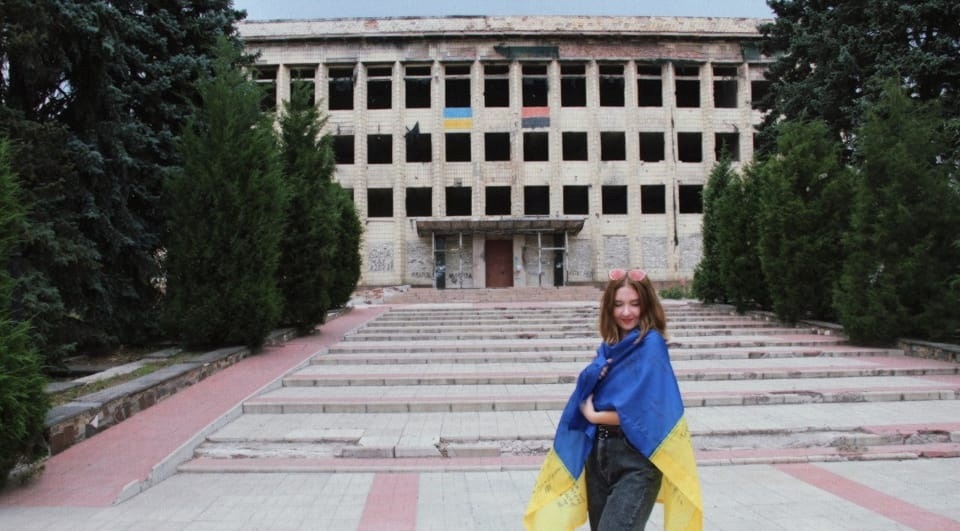 Valeria in Toretsk, a town neighboring with her village
Valeria in Toretsk, a town neighboring with her village
Lera dreams and believes that the war will sooner or later end with Ukraine’s victory. Her family does not want to run away.
- I do not even want to think about going abroad. I want to stay in Ukraine, no matter what happens here. One day we packed up and planned to move closer to the west of Ukraine, but my mother said she would not go anywhere. I said that I will not go without her and the cat. So, we stayed here.
She adds: “We are at home. Where should we run to and why? Who knows what danger awaits us elsewhere? Now I just want to enjoy every moment because it can be the last."
"In such times everyone just has to do their job"
Yaroslav NESTERENKO, an owner of Popasnaya.City website, Luhansk oblast
"Over the years we have heard three hundred times in Popasna that there will be an offensive and escalation. That’s why we didn’t pay attention to all these warnings. I didn’t believe that Putin would try to seize Kyiv and other cities. Now I even believe that he can press the red button", says Yaroslav NESTERENKO, editor and owner of the Popasnaya.City website.
The first thing he did when learned of the start of a full-scale war was to give order to pay in advance the salaries to the editorial staff. He is already aware: as soon as the shelling begins, ATMs stop working and products fade away. So, it is necessary for colleagues to have some money to buy products to stock.
The second task is to collect belongings and documents in case the projectile hits the house. Yaroslav was not going to leave Popasna. He was determined to help the locals: to film pro-Ukrainian rallies if the city is occupied, to deliver truthful information and to organize a humanitarian aid.
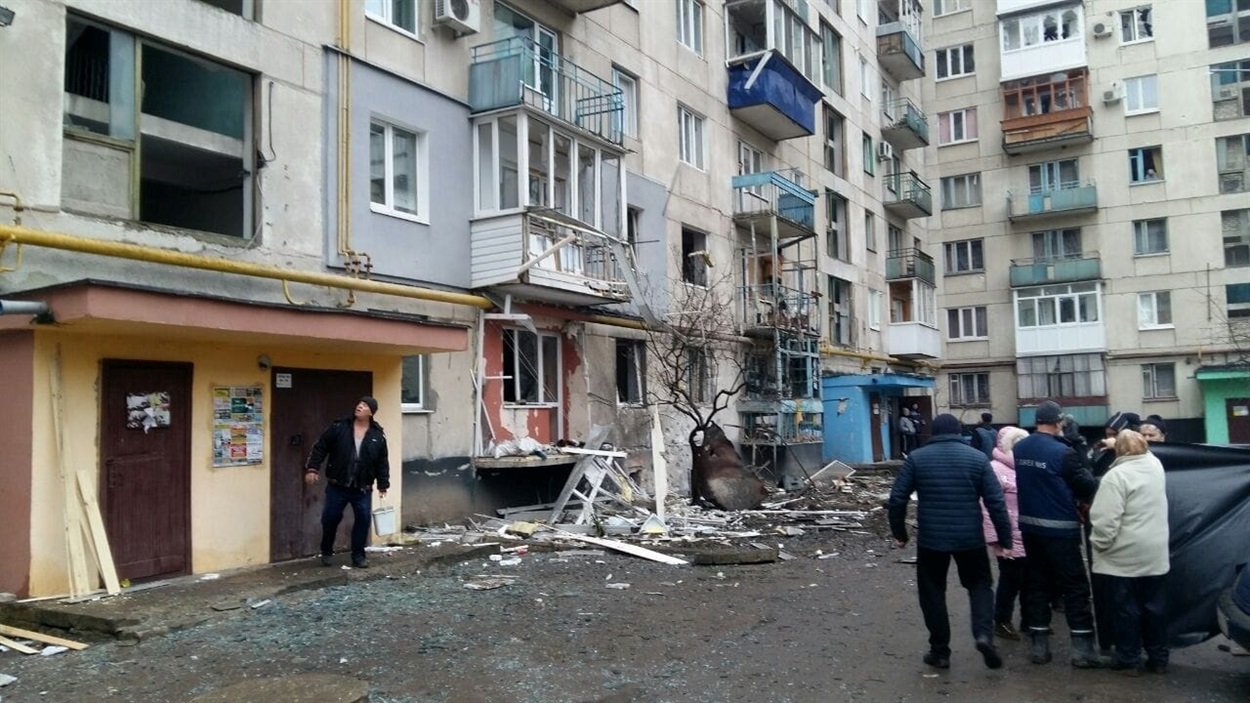 Dwelling house in Popasna after shellingФото: Popasnaya.City
Dwelling house in Popasna after shellingФото: Popasnaya.City
- Popasna was not first be shelled. Our district has been under fire for about two months already but they didn’t hit the city, only explosions were heard. This was commonplace in our frontline territories, we used to live like that. So we didn't even hide the first three days.
Then it began to hit the houses in the city, and it became scary. Yaroslav's front these days was to refute fakes, reduce the degree of panic and find out where it was possible to withdraw cash, buy food and medicine.
- There was no power, gas or water in our apartment for three days. The Internet was only mobile, and only from one operator. The Facebook feed was barely updated, and a short video upload took three hours. But I kept on working, Yaroslav says.
He stocked up power banks and brought an uninterruptible power supply device from the office to charge a phone that his whole family used. The power supply was restored at some points but in a few hours would be cut-off again due to new shelling.
- People have been sitting in shelters and started to panic that there were no products in the city and shelves were already empty. Then I checked the stores and made a video that there was food: get out, you have a chance to stock up. When rumours that there would be no bread were started, I went to the bakery and filmed the bread being baked. Then I filmed where ATMs work and where it is possible to withdraw cash, Yaroslav recalls.
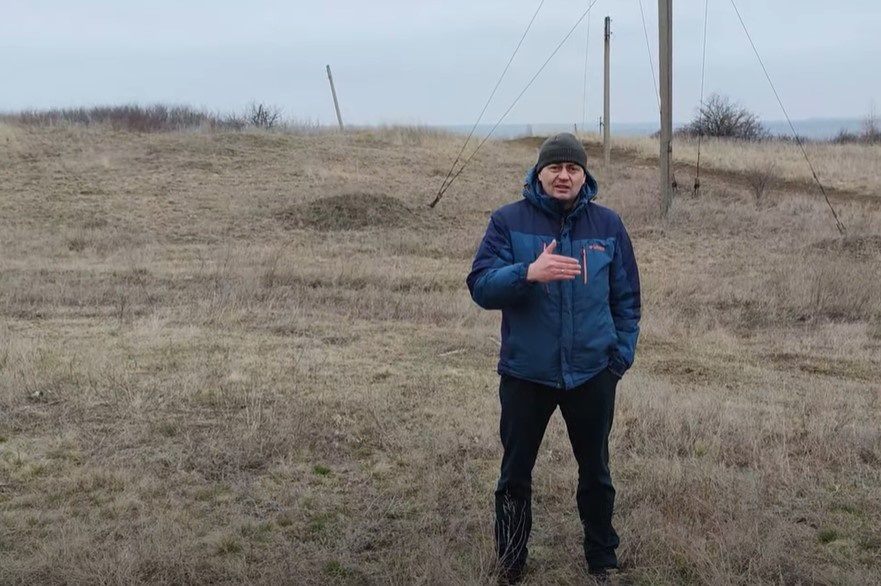 Yaroslav NESTERENKO visited the location where the cable was broken in Troitske to make a video message
Yaroslav NESTERENKO visited the location where the cable was broken in Troitske to make a video message
In March, residents of the neighboring village of Troitske were without electricity for ten days. There was shelling and power engineers were afraid to go to repair a high-voltage cable. To motivate them to restore electricity, Yaroslav himself went to Troitske to record a video from the site inciting the repairmen.
- It was clear to me if I said "Go there and repair" from a relatively calm at that time Popasna, they would ignore. So, I went to Troitske, found this cable, stood by it and recorded a message. And the next day the power engineers went there and tried to restore the electricity supply.
I believe that in such times everyone just has to do their job. I am a journalist; I do my job. And electricians have to do their thing.
In addition to his journalistic work, Yaroslav looked for buses and drivers to evacuate people and purchased medicine and food with charitable funds to distribute to those who could not stock up.
On March 9, when the internet completely went off, Yaroslav realized that he could no longer be useful in Popasna. He left for Bakhmut and settled in an apartment with the electricity and internet.
- I realized that it is impossible to stay any longer. Other Russian-occupied cities in Luhansk oblast are afraid to run pro-Ukrainian rallies. The occupants became more vicious, captivating protesters, shooting at their feet and taking away the phones of those who were filming. I realized that if Popasna were occupied, I would not be able to work in it.
Now Yaroslav is safe. He says it is not the time to think about an abandoned house and panic, and there is no point in that:
- Since March 3, when Popasna was shelled intensively, I have been working from 6:30 am to 9 pm. I started to wake up early and plan my work. I am constantly on the phone, filming something, writing, editing. My team is not working right now, so my media right now is just me and a couple of volunteers.
People from Popasna keep calling me and asking for help. Since early March, I have been arranging accommodation for people to be evacuated and arranging a humanitarian aid distribution. Now the local authorities have started to be very active in this. But I want people not only to wait for help but also to organize themselves, to help each other. Therefore, on March 15, I decided to focus more on journalism.
I am determined to help not only the Popasna and Hirske communities but all over Ukraine to the last, as long as it is necessary.



